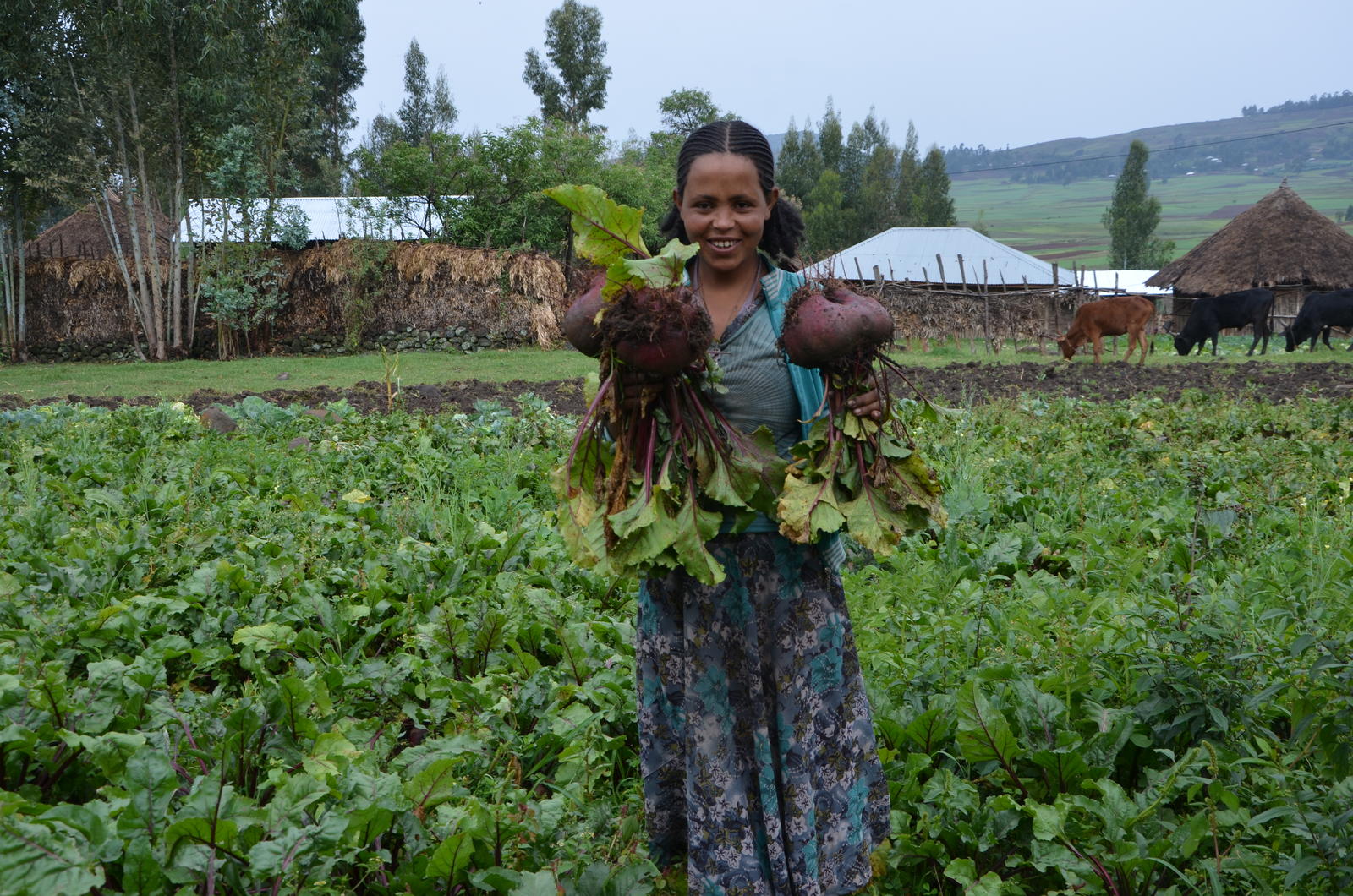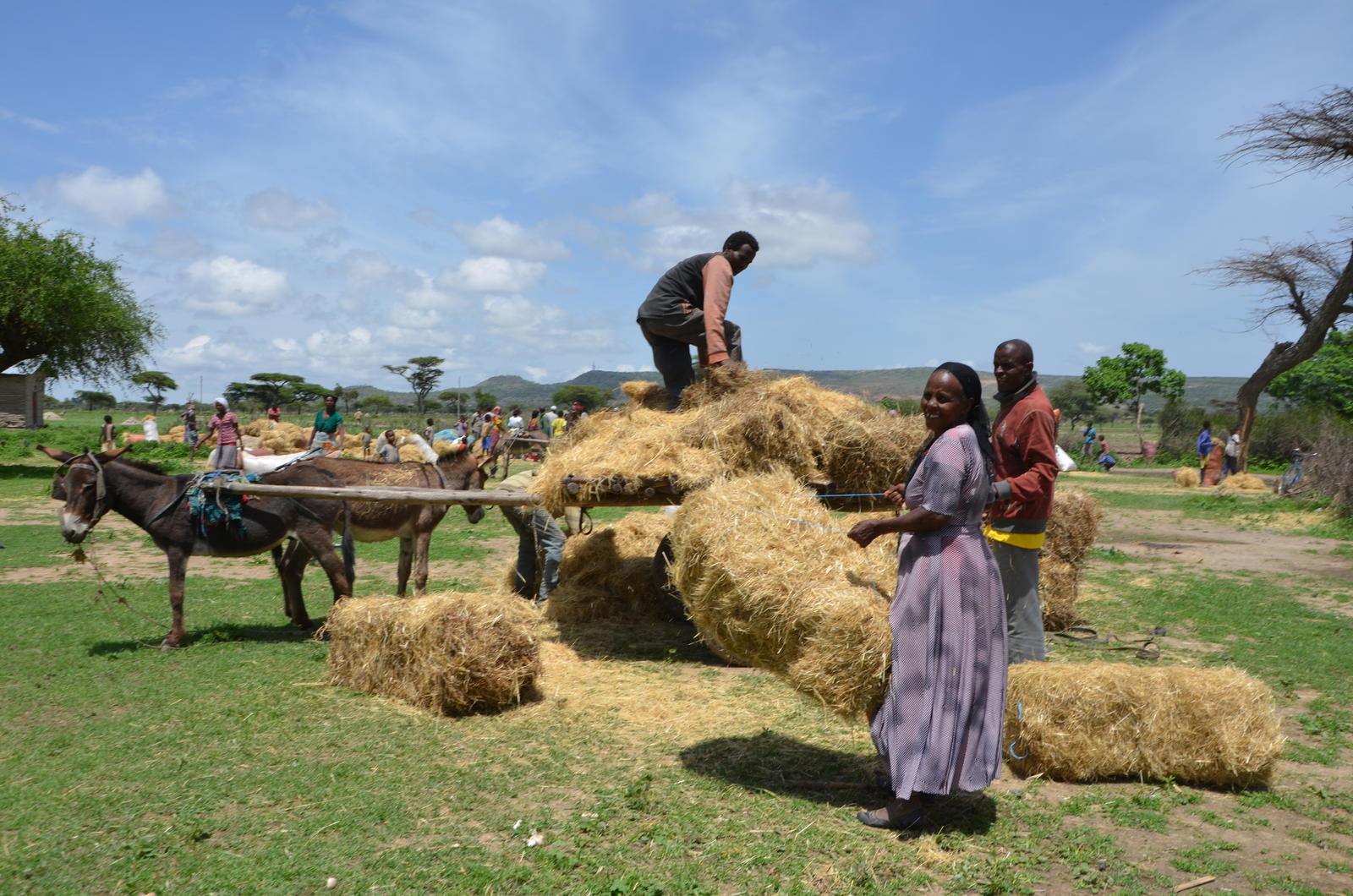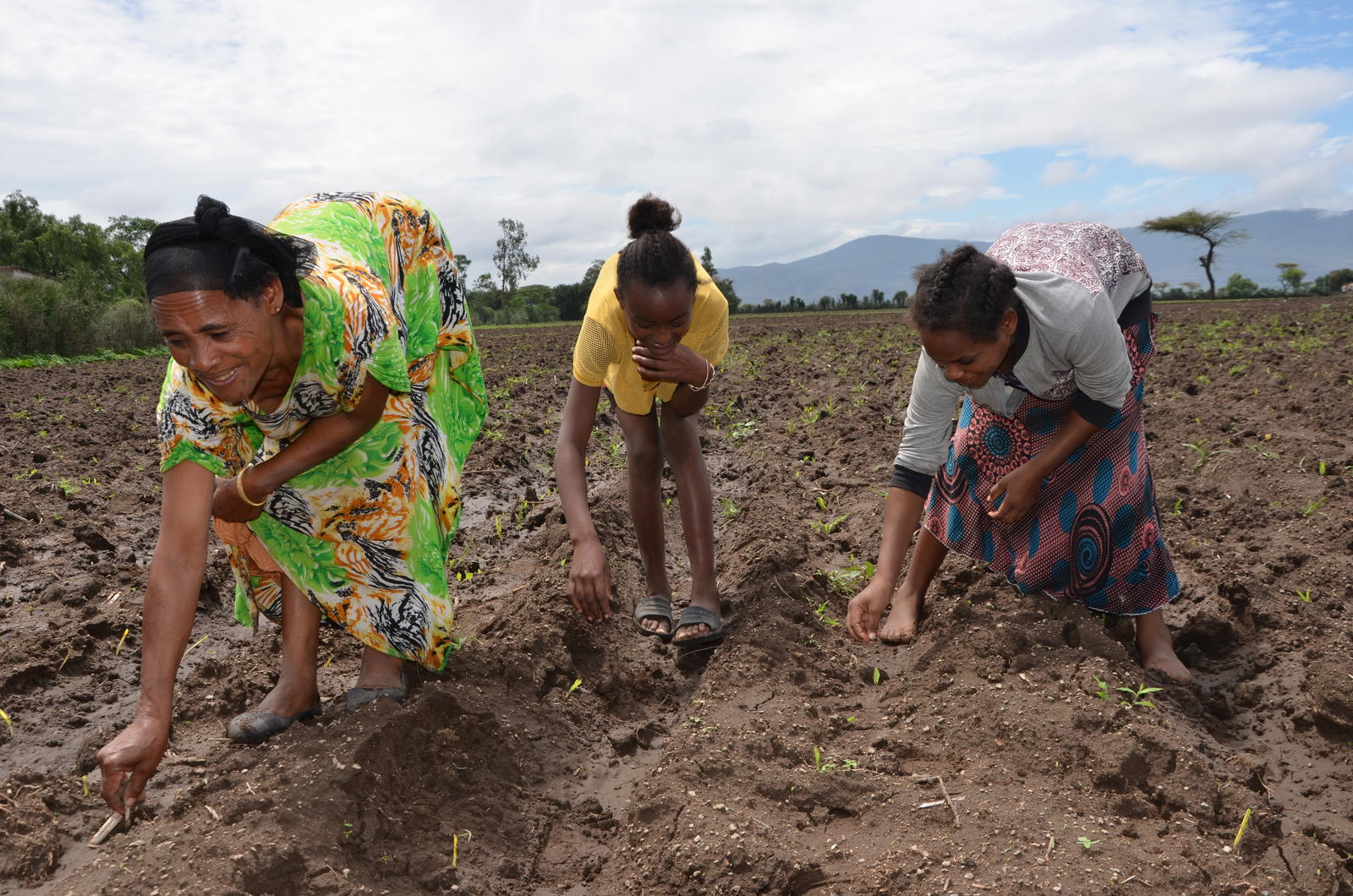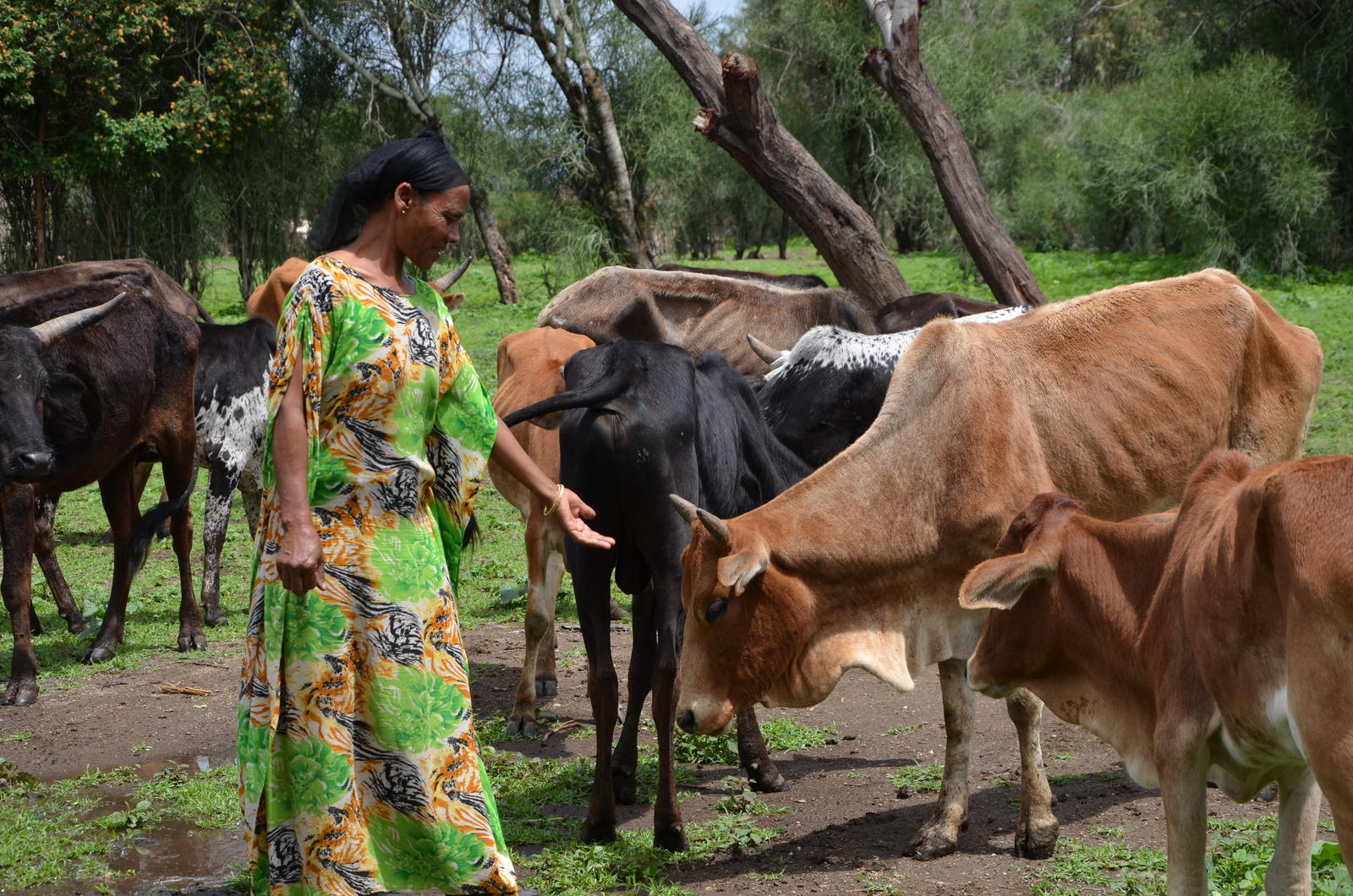June 28, 2018
From poverty to entrepreneurship. Kebele's and other 2,000 women's stories
Helping Ethiopia’s Rural Women Through Training and Loans
In Ethiopia, a programme targeting rural women has allowed one participant to buy maize, helped another invest in livestock, and propelled another beneficiary to expand her business involving local beer.
The program has many such success stories, as it has helped launched women into successful entrepreneurs, creating a path from poverty to empowerment for them and their families. More than 2,000 women in Ethiopia’s rural areas have benefited after receiving business skills trainings and loans to help them with their investments.
Kebele Gure, 30, dropped out of school when she was in eighth grade to support her family. She was married at 16 and had her first child at 18. Through the program, Gure got access to a loan and learned how to diversify her family’s income. This allowed her to rent land and purchase wheat seeds, which she later sold, then used the profit to buy maize and livestock to increase her revenue.
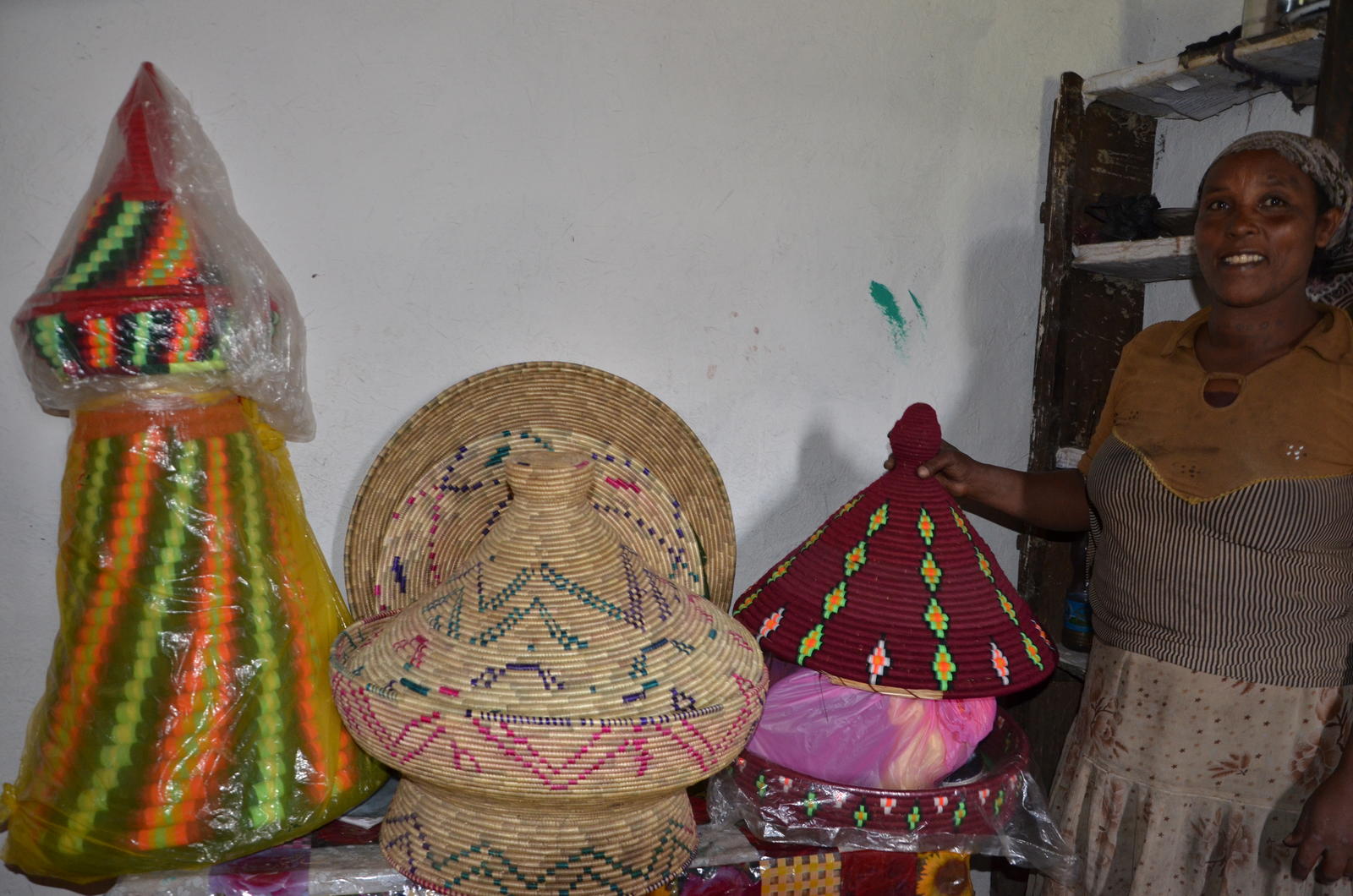
Tadelech with the hand waved baskets (Photo-UN Women-Fikerte Abebe)
Another woman, Tadelech Bekelpe, 38, went from doing laundry for other people, making a local drink and hand-woven baskets to raising and selling livestock, which is more profitable. She was able to do this thanks the program’s loan and training. She said she hopes it brings her one step closer to her ultimate goal.
“When I sell the sheep in the holiday market, I will purchase another sheep and save the profit,” she told UN Women. “My long-term plan is to open a retail shop where I will continue to produce and sell my handwoven baskets.”
Almaz Lemma, 29, relied on the program’s business training component and a loan to expand her business of retailing the main ingredient used for brewing traditional beers in her region. Beyond the educational and financial benefits, Lemma said she now has more confidence.
“For me this is the first certificate I have ever received and it will keep encouraging me to focus on the business, to earn more cash and one day to open a retail shop for consumer goods in town,” she said.
Participants cited other benefits, such as learning how to calculate profit and acquiring the skills to diversify their businesses. Thanks to the program, hundreds of women have opened their own bank accounts for the first time. And like many programs that target women, the benefits are being felt far and wide as participants are now in a better position to pay for food, education and medical costs for their children. By focusing on women, the program has ensured many families can live more safely and securely.
The SDG Fund’s programme, “Accelerating Progress towards the Economic Empowerment of Rural Women,” is led by UN Women, the World Food Programme, the Food and Agriculture Organization of the United Nations, the International Fund for Agricultural Development, and other partners.

